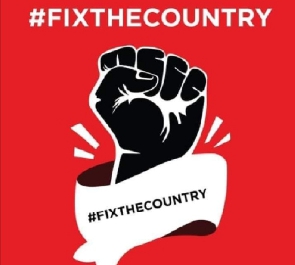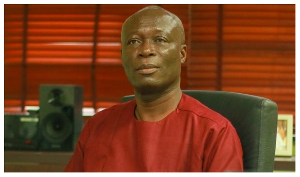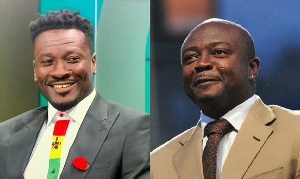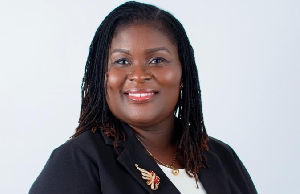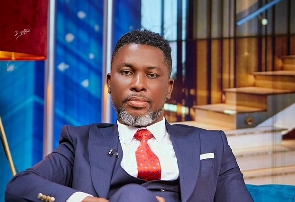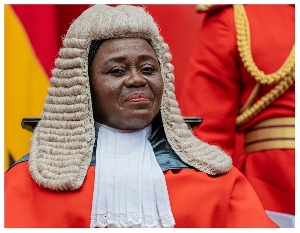If we stroll down memory lane, prior to the formation of the NDC in 1992, the founder of the NDC, the late J. J. Rawlings and his minions vowed to purge off the alleged wanton sleazes, corruption and social injustices in the country , hence plotting and executing vicious coup d’états in 1979 and 1981.
In their hasty attempts to lustrate the country of the so-called maliciousness and social injustices, the NDC founder, the late Rawlings and the other rabble rousers carried out what they termed “house cleaning exercise”, and dealt with perceived offenders arbitrarily (instant justice).
The NDC founder and his associates, so to speak, proceeded with their intentions and callously exterminated eight prominent officers, whom they wrongly accused of committing sleazes and corruption without lawful trial.
Ironically, however, the NDC founder and his cohorts claimed to have transitioned from military government (PNDC) to civilian government (NDC) in 1993 based on the so-called principles of probity, accountability and transparency. Yet sleazes and corruption were so prevalent in the successive NDC governments.
In fact, if we compared the alleged corrupt practices of the murdered army officers with sleazes and corruption which took place in the erstwhile NDC administration, we cannot resist but to maintain that the Generals were “shot for less”.
Although the PNDC and NDC administrations back then paraded some seasoned politicians, the vast majority of the military personnel who headed important Ministries were novices in the political scene.
Unsurprisingly, therefore, Rawlings’s administration adopted the disastrous Economic Recovery Programme (ERP), which was introduced under the auspices of the World Bank and the International Monetary Fund (IMF).
Regrettably, the vast majority of tangible national assets, including the state owned enterprises were allegedly sold to friends and families for pittance.
The unfavourable Economic Recovery Programme, in fact, culminated in a catalogue of hardships. And, on top of the harsh programmes and policies which threatened the economic fundamentals, the population had to clutch itself for food shortages, a situation which the world press somehow ignored in favour of the concurrent Ethiopian famine that resulted in millions of deaths.
Indeed, their desperate attempt to initiate the Programme of Action to Mitigate the Social Costs of Adjustment (PAMSCAD) did nothing to improve the unfortunate situation as untold hardships permeated many households.
Starvation, so to speak, visited the vast majority of Ghanaians, and hence developing revoltingly ugly collar bones, which the humorous Ghanaians renamed as “Rawlings Chain”. That was indeed the pernicious extent of the hunger.
Perhaps, in juxtaposition, the 1983 hunger was comparable to that of the Ethiopian famine back then. However, Ghana’s famine was not hyperbolised by the global media.
Somehow, both Ghana and Ethiopia were back then ruled by uncompliant military dictatorships that looked on cluelessly and somehow unperturbed whilst the citizens endured widespread hunger.
Suffice it to stress that as food shortages escalated in Ghana, some traders started creating artificial shortages of goods by hoarding them so as to charge exorbitant prices at a later time.
Disappointingly, despite being in power for nineteen years, the NDC founder, former president, the late J. J. Rawlings’s could not initiate any meaningful policies and programmes to improve on the socio-economic standards of living but only managed to destabilise Ghana’s macroeconomic indicators.
Thus, after taking over the presidency from Ex-President Rawlings on 7th January 2001, President Kufuor had a tough time running the country as there was not much funds left in the national purse to plan anything meaningful.
Ghana was then declared as Highly Indebted Poor Country (HIPC). The newly elected President Kufuor had a tough decision to make, by either embracing or rejecting the HIPC status.
However, the forward thinking President Kufuor chose to swallow a bitter pill with a view to getting over the malaise. He thus pragmatically embraced the HIPC status in 2001.
On reflection, though, the benefits of the HIPC were unprecedented during former President Kufuor’s administration, from (2001-2008).
Consequently, macroeconomic indicators begun to stabilize and Ghana’s debt stock was significantly reduced by about $4 billion within that period (BOG).
Besides, as a result of the HIPC initiative and prudent borrowing, Ghana’s external debt stock actually declined from $6.1 billion in 2000 to$3.8 billion by 2008 (BOG). It was an unprecedented achievement, so to speak.
The average GDP growth of the NDC from 1993-2000 was 3.8% while that of the NPP from 2001-2008 was5.2% with economic growth reaching 6.3% in 2007 and 9.1 in 2009 (GSS/BOG).
As it was expected, former President Kufuor successfully completed his first term in office (four years), having successfully managed to stabilise the macroeconomic indicators.
Subsequently, the good people of Ghana handed him the mandate for another four year term following a keenly contested presidential election on 7th December
2004.
Truth must be told, former President Kufuor’s pragmatic policies and programmes reaped tremendous results. But due to time and space constraints, I will not be able to enumerate all the wonderful achievements during his tenure in office.
Take, for example, Ex-President Kufuor and his government managed to expand Ghana’s economy and thereby quadrupling the GDP to a favourable $28 billion by 2008. Plus, the NPP government left an encouraging economic growth of around 9.1 per cent.
Moreover, through hard work, Kufuor’s government managed to discover oil in commercial quantities, which eventually helped moved Ghana to Middle Income Economy.
Indeed, President Kufuor exerted dint of critical thinking, worked strenuously for eight solid years, laid an auspicious economic foundation and retired honourably in January 2009.
President Kufuor admirably passed on the baton to the late President Mills on 7th January 2009, following his victory in 2008 election.
Apparently, things started to fall apart. It went from bad to worse following President Mills sudden and mysterious death in July 2012. The conspiratorial plotters then had a field day leading to the 2012 general elections.
Ex-President Mahama and his NDC apparatchiks went berserk in their desperation to cling on to power. Thus they broke all conventions. Many government departments spent over and above their allocated budgets.
Unsurprisingly, therefore, many observers harbour a strong view that Ghana’s economic downslide came about as a result of the unbridled sleazes and gargantuan corruptions which took place during the erstwhile NDC administration.
Somehow, President Mahama and his NDC apparatchiks failed to acknowledge that corruption is a key element in economic underperformance and a major obstacle to poverty alleviation and development.
The general belief back then was that they bought votes with the tax payers’ money. They nonetheless clung on to power following the controversial election on 7th December 2012. Suffice it to state that their victory came with huge costs to the state.
Regrettably, the previously single digit inflation and budget deficit doubled astronomically. The GH9.5 billion debt which former President Kufuor and his NPP government left in 2009 rocketed artificially to unpronounceable figures. Our total debt ballooned to GH122.4 billion as of December 2016.
Unfortunately, Ghana went into the throes of economic collapse due to mismanagement and wanton sleazes and corruption.
Take, for example, Ghana’s economic growth slowed for the fourth consecutive year to an estimated 3.4% in 2015 from 4% in 2014 as energy rationing (dumsor), high inflation, and ongoing fiscal consolidation weighed on economic activity (World Bank, 2016).
Moreover, the high inflation rate remain elevated at 18.5% in February 2016 compared to 17.7% in February 2015, even after the Central Bank’s 500 bps policy rate hikes (the inflation stood at 15.8 per cent as of October 2016).
Dearest reader, you may agree to disagree, all the available evidence suggests that the NDC government under President Mahama rather managed to worsen the socio-economic standards of living than any other government in the history of Ghanaian politics.
Opinions of Thursday, 13 May 2021
Columnist: Kwaku Badu

